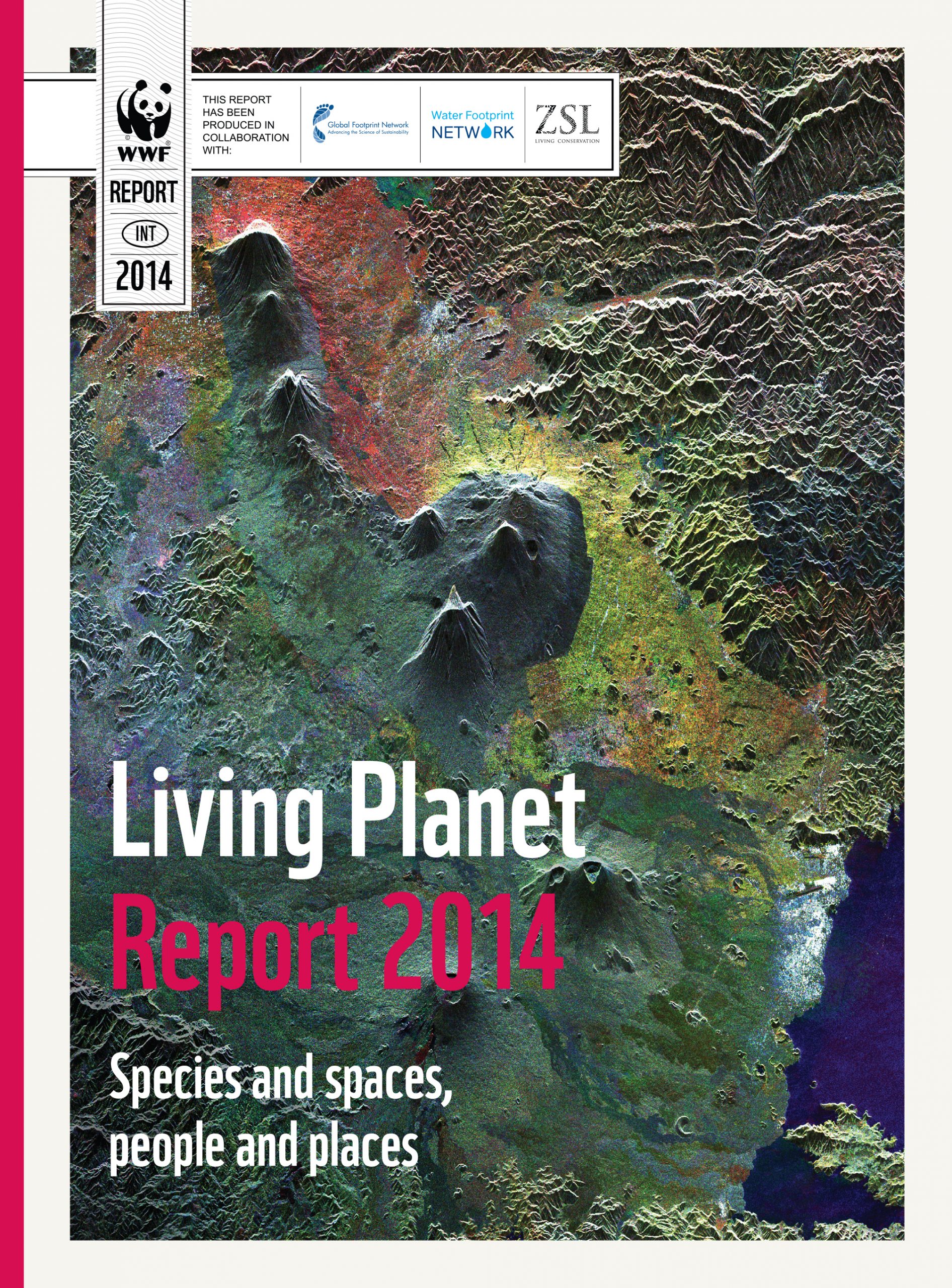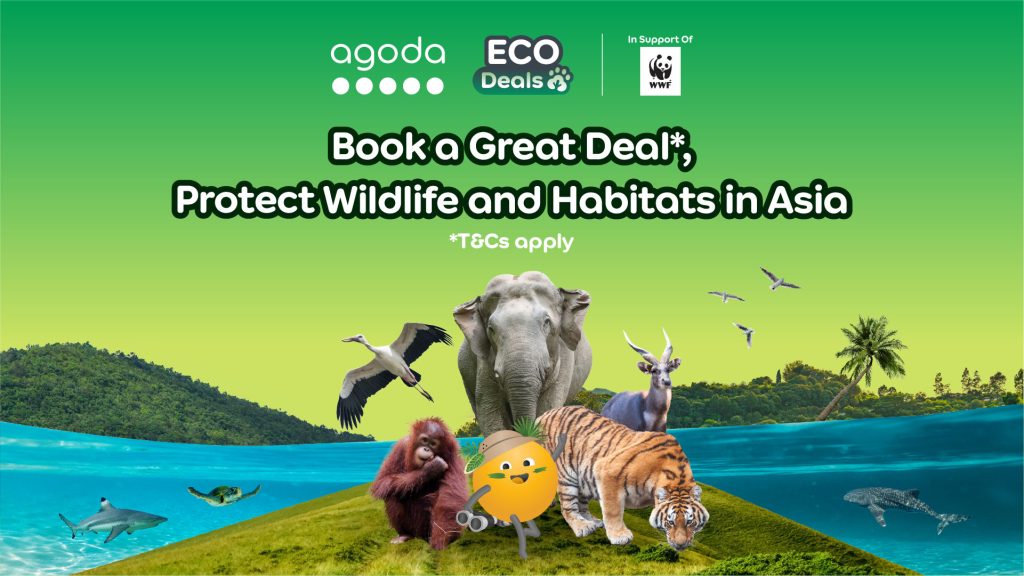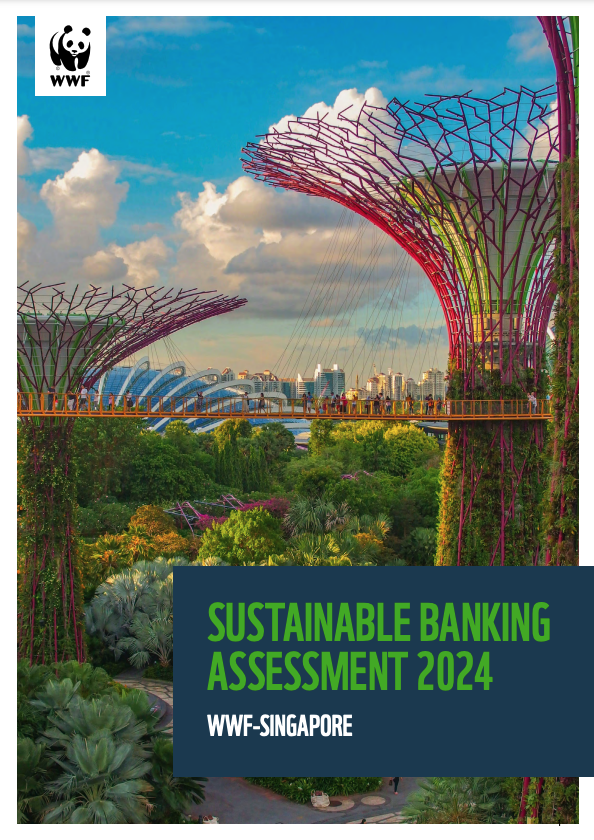Singapore, 7 October, 2014 – The World Wide Fund for Nature (WWF) has released the 10th edition of the Living Planet Report, which is published every two years outlining the health and state of the planet. The report measured that global wildlife populations have declined by more than half in just 40 years, while Ecological Footprint – a measure of humanity’s demands on nature – continued its upward climb. Put together, biodiversity loss and unsustainable footprint threaten natural systems and human well-being, but can also point us toward actions to reverse current trends.
These startling results have been attributed to habitat loss and degradation, compounded by the added pressure of wildlife hunting to make way for agriculture, urban development and energy production. Climate change is also the next most common threat linked to the decline and possible extinction of some species – glaring evidence that current human action is jeopardising the planet’s future by taking more from the ecosystems and natural processes than can be replenished.
Singapore is ranked in the top ten of the world’s largest Ecological Footprint, with 70 percent of that coming from
carbon emissions. Being a small city in terms of land area similar to Hong Kong and Monaco, Singapore uses more resources than what it has available to sustain the increasing demand of human development. This is especially so for a country with limited natural resources, a large amount of goods and services needs to be imported from other countries, contributing to the amount of carbon emissions produced by each individual. If every person in the world lives like someone from Singapore, we will need 4.1 planets to sustain our needs.
“The Living Planet Report highlights the fact that we may have already crossed our ‘planetary boundaries’ and it is more urgent than ever for us to act now to change the course and balance development and consumption with
nature conservation to ensure that our planet can continue to sustain our needs,” said Elaine Tan, CEO, WWF
Singapore.
“Our societies and economies depend on a healthy planet. We are all connected, every nation, including Singapore, must determine how we can consume less without compromising our development,” added Tan. “We can do this by increasing public awareness on protecting our natural resources, as well as producing and consuming more sustainably.”
WWF Singapore works closely with businesses and government agencies, addressing the issues of climate change, driving market transformation and encouraging partnerships across sectors to come together to impact change to reduce carbon emissions at a sustained level. In 2012, The National Climate Change Strategy document, published by the National Climate Change Secretariat, outlined the impact climate change will have on Singapore, the implications of climate change, as well as initiatives and strategies in place to address these challenges. This includes looking at alternative ways to harness or improve energy efficiency, reducing carbon emissions in all sectors, being ready to adapt to climate change effects, harnessing green growth opportunities and forging partnerships and engaging people.
Raising public awareness is also a strong mandate for WWF Singapore to show individuals that everyone is
responsible for the health of the planet and that each of us can make a difference. There has also been a noticeable increased participation amongst the people, public, and private sectors in terms of awareness and pledges to protect the environment. In March this year, over 9,000 people gathered together for Earth Hour to show their support and over 30,000 pledges from Singapore were received showing commitment beyond the hour to save the planet.
Sustainable development is possible while maintaining a decent standard of living without the expense of a
suffering planet. Individuals, communities, businesses, cities and governments have the choice to protect natural
resources and reducing their Footprint. WWF outlines better choices better choices for managing, using and sharing natural resources within the planet’s limitations with its “One Planet solutions” that requires us to reserve our natural resources, produce and consume more sustainably, redirect financial flows through resource management and innovation, and lastly, push for equitable resource governance to make fair and ecologically informed choices.
—-ENDS—
The complete report, summary and support material can be found at
https://www.wwf.sg/what_we_do/living_planet_report_2014/
MEDIA CONTACTS:
Leanora Lyn Gaffar
Assistant Communications Manager
World Wide Fund for Nature (WWF) Singapore
Email: lgaffar@wwf.sg















